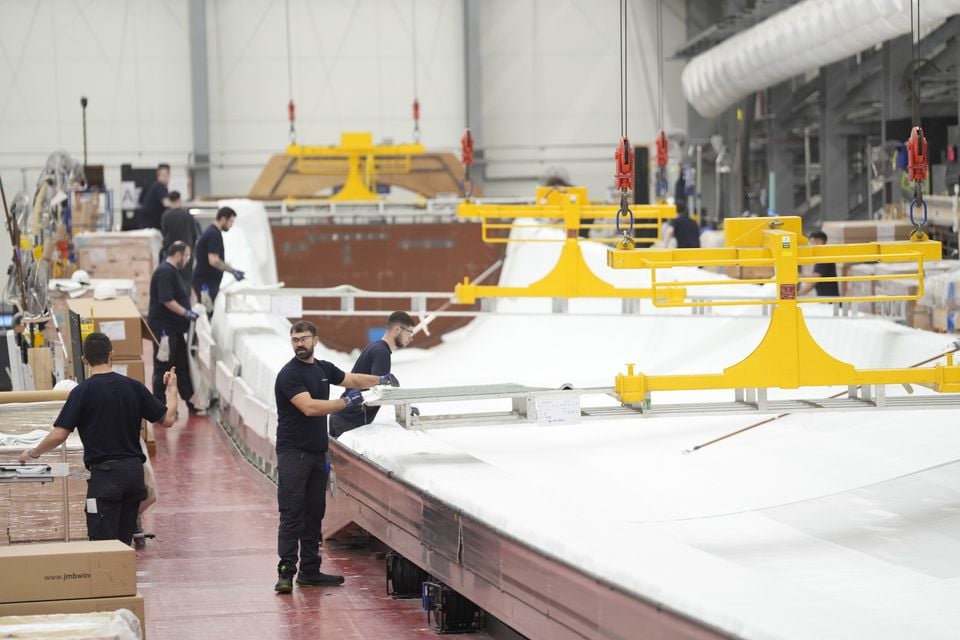But the Ulster Bank Regional Growth Tracker said the solid increase in employment was against a backdrop of falling output and declining new orders.

The manufacturing sector in NI recorded the biggest fall in output in July, according to Ulster Bank (Danny Lawson/PA)
New orders were down for the ninth month in a row with businesses still bedevilled by inflationary pressures and even Brexit-related problems getting goods from Great Britain, the monthly survey found.
The tracker’s headline business activity index was at 49.7, slightly below the no-change mark of 50 but above June’s 48.2 reading.
Ulster Bank said the two readings combined signalled a stabilising of private sector output at the start of the third quarter, mainly down to muted customer demand.
And the manufacturing sector experienced the most marked fall in output, while there was increased activity in construction and retail, with service firms’ output broadly stable.

Sebastian Burnside, Ulster Bank chief economist
Sebastian Burnside, Ulster Bank chief economist, said: “Although demand conditions generally remained subdued as the second half of the year got underway, Northern Ireland continued to outperform the rest of the UK in terms of job creation.
“Staffing levels were up solidly amid positive expectations for the coming year.
“Greater resources should hopefully help lead to a pick-up in business activity, which neared stabilisation in July.”
But he said strong inflation was still a key headwind which was showing little sign of easing off.
“For demand to really pick up over the second half of 2025, we will likely need to see some softening of price pressures in the near future.”
According to the survey, business was finding that clients were reluctant to commit to spending, with new orders down for the ninth month in a row.
Yet Northern Ireland firms were still optimistic that output will rise over the coming year, although sentiment eased to a three-month low and was just below the series average.
And of 12 monitored areas of the UK, NI was the only one to record a rise in staffing levels during July – and that increase was the fastest in 10 months.
According to Ulster Bank, “the solid rise in staffing levels meant that companies in Northern Ireland were able to deplete backlogs of work again in July”.
But suppliers’ delivery times got longer for the second time in three months, and to the strongest degree in two-and-a-half years. “Some firms reported delays in deliveries from the UK as a result of Brexit,” Ulster Bank said.
In addition, input costs were up again, with NI facing the fasted rise of all 12 UK regions and many companies blaming the rise on higher staff costs.
On Monday, the separate KPMG and REC report on jobs said hiring activity had fallen in July as the UK jobs market was weighed down by concerns over the economic outlook and increased labour costs.
